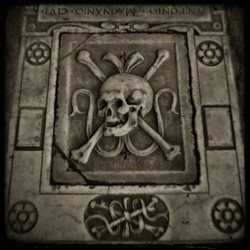 We've been looking at the humiliation of Christ as it is summarized in The Apostles' Creed. We've talked about his birth, sufferings, and crucifixion. But it is interesting to note that the Creed does not fail to mention that Christ actually died and, to prove such, was buried. In this we are reminded that Christ became “maximus peccar,” the supreme sinner, and bore the wages of sin. He not only suffered extreme torment, but he met the full penalty that was intended for man's disobedience. One may wonder why it was necessary that all this happen to our Lord. Some who are of an atheistic stripe have said that this amounts to nothing other than a grotesque God because He has His own Son killed. Yet we must remember that this is necessary for salvation. The justice of God had to be appeased. The penalty of sin is death and it was incumbent upon Christ to pay that penalty in the full if redemption was to be provided. 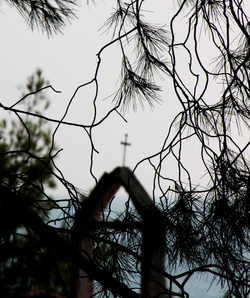 [This is the third in a series on the humiliation of Christ. Here are part 1, & part 2] Crucifixion was excruciating, to say the least. At that time, it was the most horrid way to die. It is not the intent now to detail the humiliating depths of crucifixion. It is enough for our purposes to say that it was a painful and shameful way to die. That Christ hung on that tree and suffered the most horrendous form of death reminds us that Jesus endured the full brunt of God's wrath. He was, most definitely, in hell. When thinking about the cross, we must not forget that his sufferings were not just physical, but mental and emotional too. He was experiencing His Father's anger. The blessings of life in all its forms (i.e. light, happiness, communion with the Father) were being withdrawn from him. No doubt his mind was swirling with grief and despair. So much was his inward pain that he cried out with anguished voice, "My God, My God, why have you forsaken me?" All this is to assure us that Jesus bore the curse which was due to us for sin. The tree of Eden had been the arena of the first sin. The tree of Calvary became the means of reversing that ordeal. The warning that the Lord had first issued was that "the day you eat of it you will surely die." The Creed serves to remind us that Christ took that curse upon himself at the cross.  We have been conducting a series on the humiliation of Christ as it is summarized in the Apostles' Creed. We now come to the last and most perplexing statement: He descended into hell. This phrase has been the subject of much dispute. As a result, there are a number of theories. Some take it to mean that Christ, subsequent to his death, went to the locality of hell, where OT saints were said to be waiting and set them free so that they may, at long last, enter heaven. This interpretation, which is held by RCC and some Protestant churches, is based on an errant understanding of 1 Peter. 3:18f (For a sermon dealing with this passage go to our series on 1 Peter). Others have taken this statement "He descended into hell" to be a reiteration of Christ’s sufferings on the cross, this time pertaining to the mental agonies that he endured. Perhaps the best way to understand this phrase is that Christ remained under the power of death for a time. The word hell is the word Gehenna, which indicates the grave (i.e. he remained in the realm and under the power of death). It’s positioning in the Creed, after buried, seems to indicate such. What then is the purpose of this statement? It serves to remind us that the full penalty of death was paid by Christ. Christ not only died, but he remained under the power of death for a period of time. Thus, he bore in full the penalty of sin.
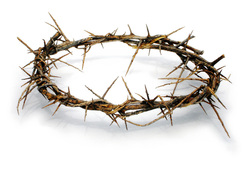 [This is a second in a series on the humiliation of Christ; articles composed for the advent season] As with his holy conception and birth the creed’s statement of his suffering under Pontius Pilate is synecdoche. That is to say, it represents all his earthly sufferings that lead up to his death and that for which we may call him the “Man of Sorrows, acquainted with grief”. These include… 1. His being betrayed by Judas and forsaken of his disciples: Christ, in his humanity, had friends. Close friends at that. They were his confidants and the ones with whom he experienced camaraderie. We must not think that Christ had a stoic attitude towards his earthly associates. He loved them, laughed with them, and bonded with them as any mortal would. We likely have experienced a friend forsaking us or turning his back on us. Christ experienced this on a grand scale. 2. He was scorned & rejected by the world: He came to his own, but his own did not receive him. We often see Christ in conflict with the Religious leaders. We must not think that his rebukes were out of anger only. They were no doubt accompanied with tears. To be run out of towns and ridiculed by throngs would have no doubt multiplied his grief. 3. He was condemned by Pilate: To have a sentence passed against you is distressing. But it is different if you are innocent. Since Pilate knew that Christ was innocent (and even sought to persuade the audience and be something of an advocate for Christ’s release), it would have been even more troubling. 4. He was tormented by his persecutors: This should be obvious enough. Let us not forget though that Christ suffered numerous beatings, perhaps 4 altogether (one the hand of the Jews, one at the hand of Pilate, one at the hand of Herod, one at the hand of the crowds as he was led to Golgotha—it was their custom to “get their digs” as they were being led to the place of execution). 5. He conflicted with the terrors of death: Besides suffering the brutality of men, he experienced the mental anguish over his impending execution in the Garden of Gethsemane. This was of such an extreme degree that his pores began to seep blood (in other words, his capillaries were under such stress that they broke and released blood).
 You are invited to a joyous time of fellowship as we celebrate the birth of our Savior! Bring your friends, family, neighbors, and complete strangers to the church Dec. 15th (6:30 pm) to be edified by the congregation's talents. Afterwards we will serve light refreshments and finger foods. Anyone in Providence Church who would like to contribute to the evening's festivities may do so. Some of our children will be putting on a program. But we also encourage others to participate through song, music, readings, skits, and the like. If you and/or your family would like to do something, post it. Or let Matt or Wyatt Dupre know. |
The righteous are as
bold as a lion. FOLLOW
Get edified through our social media outlets.
VISIT
Grow in grace by joining us in the worship of God.
LISTEN
Hear the word of God explained, illustrated, & applied.
Proclaiming the Biblical
& Reformed standard for faith, family, & society LEARN
Sign up for our
monthly newsletter STUDY
Connect with a Bible study group.
EXPLORE
Check out what's happening!
Support the
Sanctity of Life Support the
Ashland Care Center Categories
All
LinksArchives
November 2015
|




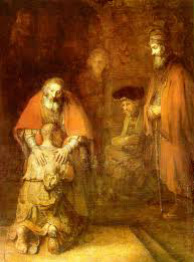

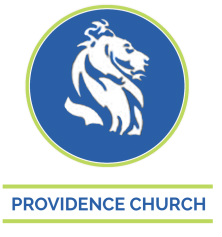

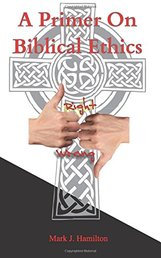
 RSS Feed
RSS Feed
